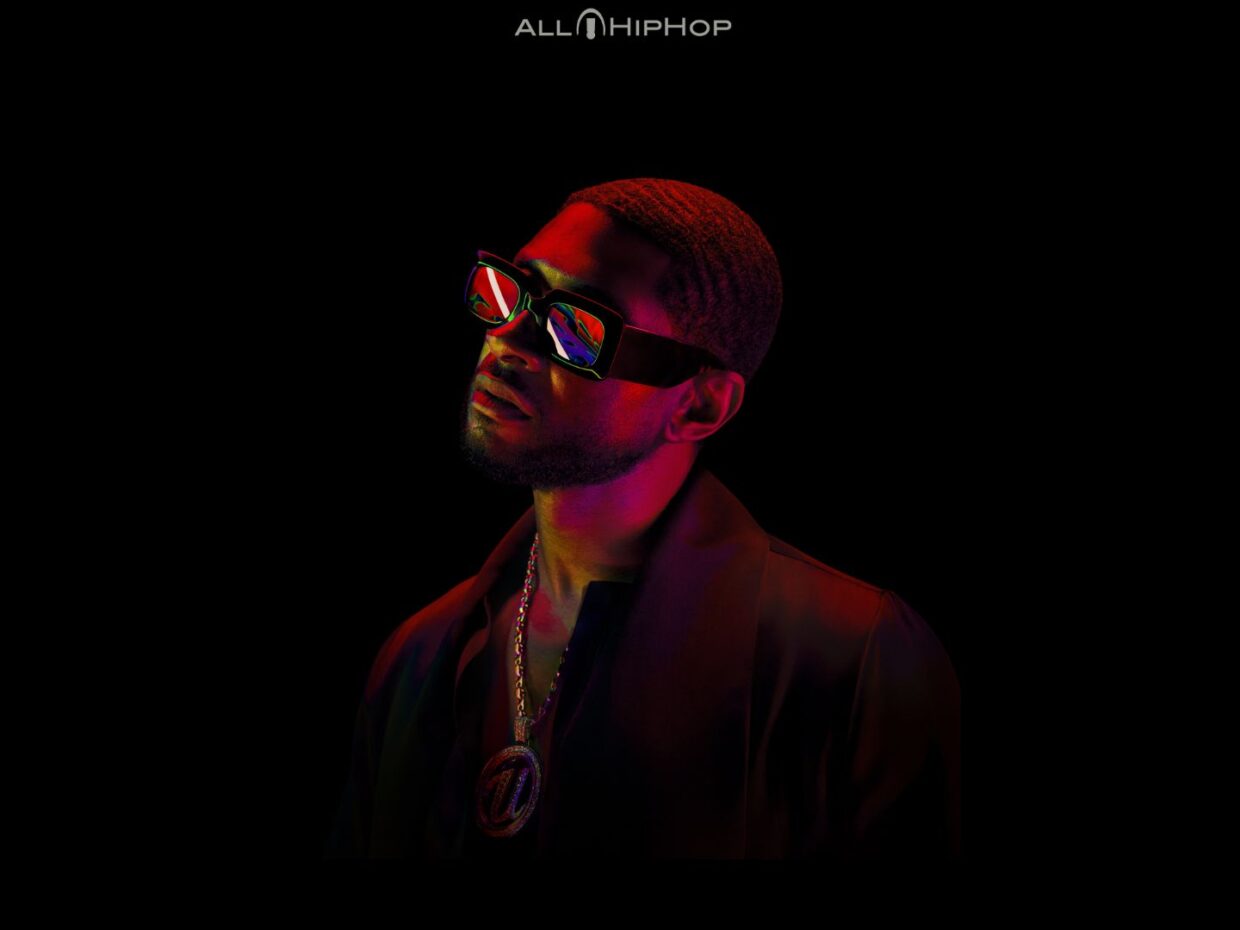Before gracing the Super Bowl Halftime stage, Usher is paying tribute to the legends who paved the way for him. In a conversation with E! News, the veteran singer shared his personal R&B Mount Rushmore—a classic method for highlighting one’s top four favorites.
Right from the start, he confidently asserted, “I get to include myself in there.” He then revealed his esteemed quartet: “Marvin Gaye takes his place, Michael [Jackson] is a must, Prince is unquestionably present, and I’d also honor a few remarkable female vocalists like Whitney Houston. It’s not limited to just men, after all.”
But wait a second, is Usher worthy of such an incredible distinction?

Usher’s confidence is something that I can’t help but admire, and I believe him to be a G.O.A.T. with a few of his peers. His resurgence, resilience and relevance is unparalleled in modern times. So whether you’re a fan or not, you have to give it to him; he knows who he is and he’s not afraid to show it. But let’s take a moment to delve into what this confidence means in the broader context of the Mount Rushmore of R&B.
LeBron James put it down in basketball in a way that it sparked the worldwide conversation of who is better, him or Michael Jordan. In the basketball world, the brother—like Usher—put himself on the pedestal alongside the all-time greats so the scrutiny is bound to come. It’s like an unspoken challenge to the world, saying, “Judge me by the standards of the best there ever was.”
It’s only natural for us to start examining the receipts.
Now, the term “receipts” (slang coined by Whitney Houston) can mean many things. Some might focus on statistical achievements like record sales or the number of chart-topping hits. Others could argue that a successful Las Vegas residency, like Usher’s, is a testament to an artist’s enduring appeal. Some artists like MJ sold a staggering amount of records, showcasing his immense popularity. It’s interesting to note the distinction made between R&B and pop, with the assertion that pop such as MJ or Whitney Houston is essentially R&B for a broader audience. They transcended all boundaries, especially those of a racial sort. In a way, this highlights the fusion and evolution of music genres over time.
But it’s essential to recognize that while we can have these discussions about pop, R&B and their intersections, the heart of it all is music. Regardless of labels or categories, music, at its core, is a universal language that connects people across the globe. It’s about personal expression, cultural narratives and the emotions it evokes.
So, when artists like Usher proudly claim their place in the pantheon of greats, it’s a reminder of the power of music to inspire and transcend. Their confidence challenges us to engage with the art form on a deeper level, to appreciate the diversity within it and to acknowledge that music, in all its forms, has the potential to move and unite us all.
And that’s exactly what he’s doing right now. His Las Vegas residency is a sight to behold. Usher, without question, is an A-list singer and songwriter, a Grammy Award-winning artist, a dancer with a magnetic charisma. The show blends timeless classics and his R&B hits. The series marks an unforgettable moment in music history.
R&B, or rhythm and blues if you will, has a rich and storied history, with legends like Curtis Mayfield, Marvin Gaye and Aretha Franklin who used their music to challenge the status quo and stand up for the greater good of Black society. These artists created songs that became anthems for social change, addressing the pressing issues of their time.
In contrast, when we look at more recent figures in the R&B world, like Usher and R. Kelly, it becomes challenging to find songs in their repertoire that have had a similar impact on society or taken a stand on significant issues. The absence of protest and militancy in their music leaves a void that their predecessors worked hard to fill.
R. Kelly, who has always been a scoundrel to me, made significant contributions to the genre, particularly with his “Trapped in the Closet” series, which pushed the boundaries of R&B storytelling. However, his career took a hit due to personal controversies, most notably the infamous “P### on You” video scandal. Now, R. Kelly whatever greatness he may have had has been destroyed by accusations of sexual abuse that stretched back to the early days of his career in the 1990s. Now, the one-time Pied Piper of R&B sits in a cell after being struck down with a 30-year prison sentence coupled with numerous counts of sex trafficking, racketeering related to underaged girl. This legal series has left a lasting, permanent stain on his legacy, overshadowing his musical achievements.
Usher, on the other hand, has enjoyed a successful career with numerous hits and the iconic Las Vegas residency. Still, his music has not been marked by the kind of social responsibility and activism that defined the R&B greats of the past. That is not to suggest Usher doesn’t give back, because he does, but does he have a seminal song that represents for the people?
To be considered at the top echelon of R&B, artists have historically had to make sacrifices for the greater good of Black society. Legends such as James Brown, Curtis Mayfield and Michael Jackson used their music as a platform to address pressing social issues and advocate for change. They created songs that stood as calls to action, addressing racism, inequality and injustice.
Marvin does. Michael does. Prince does. Even Whitney does. While Usher undoubtedly produced enjoyable and influential music, his work doesn’t have the same social impact. And we can definitely argue it’s needed right now.
There’s a rich tradition of protest and militancy in R&B music. We’re looking for contemporary artists to take up this mantle. Music is a powerful medium that can inspire change, raise awareness and challenge the status quo. As we continue to enjoy the sounds of modern R&B, it’s worth asking whether these artists can rise to the occasion and contribute to the ongoing struggle for equality and social justice. The responsibility of continuing the legacy of R&B’s greats lies not only in creating hits but also in inspiring change through the power of music.
We don’t see it so much, but there are some remnants. Jill Scott has shaken things up with her rendition of the “National Anthem.” Beyoncé and Kendrick Lamar recently joined voices on a hit record talking about America—and this is all legacy that started since we set foot on this land.
Regardless, Usher stands as one of the immortal figures of R&B. While I may not find Usher’s tunes gracing my personal playlists, it’s an undeniable fact that he’s an omnipotent force in the world of music—a sentiment I’m never, ever going front on. His contribution to the industry is nothing short of legendary, and it’s essential to recognize the gravity of his influence on music lovers worldwide.
And that’s what is key: concocting a formula that transcends personal tastes and preferences. His ability to unite people through the medium of music is a testament to the universality of his work and the power of the art form itself. So respect.
Usher’s much-anticipated Super Bowl Halftime Show at the Allegiant Stadium in Las Vegas next February may be the biggest show of his career, as the Super Bowl is the most watched event of the year. This could be a transcendent moment that puts him on that Mt. Rushmore. He said, “The power of manifesting things into reality is genuine, and I’m genuinely thrilled about what’s in store for that night.”
He admitted that iconic headlining sets by Michael Jackson and Prince were partial inspiration for his looming Super Bowl outing. Personally, I can’t wait to see what he has for us on that day.

